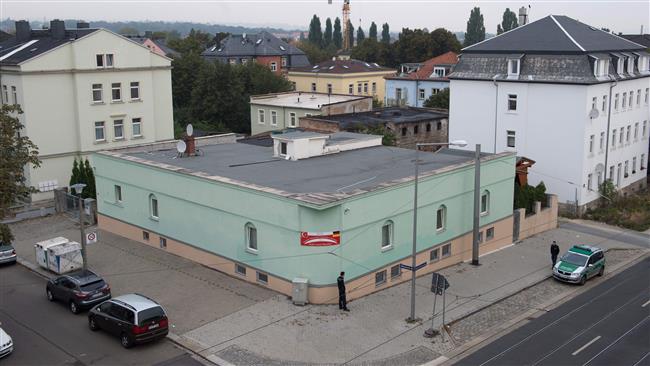
RNA - The first explosion occurred as an improvised explosive went off outside the Fatih Camii Mosque on Huhndorfer Strasse in Dresden’s eastern neighborhood of Cotta at 21:53 local time.
The blast inflicted damage to the door of the mosque, while the imam of the mosque was inside the building along with his wife and sons. None of them, however, sustained injuries in the incident.
Shortly after the first blast, the second bomb exploded outside the International Congress Center, causing some damage to the building and forcing police to evacuate the nearby Martim Hotel.
“Although no-one has claimed the attack, we assume a xenophobic motive. We also suspect a connection with celebrations next weekend for the Day of German Unity,” said Dresden police Chief Horst Kretzschmar.
On October 3, the city will host national celebrations to commemorate the 26th anniversary of the reunification of East and West Germany in 1990. German Chancellor Angela Merkel and President Joachim Gauck are expected to attend the event.
Soon after the attacks security forces were deployed to the affected areas and put both buildings under protection.
“These events will certainly impact our current plans for patrolling [in the run-up to unification celebrations]. As of right now we are working in crisis mode!” Kretzschmar added.
Reports say that other mosques in the city were also placed under protection by police officers in a bid to safeguard them against possible further attacks.
Dresden, with a population of nearly 550,000, is known for far-right views and xenophobic sentiments.
The city has become a hotspot for anti-Muslim activities and sentiments since 2014, when an extremist anti-Islam and anti-refugee movement known as PEGIDA, was founded there.
The movement had lost its popularity until the outbreak of the refugee crisis in European states, particularly Germany. PEGIGA has managed to attract some 20,000 supporters and hold weekly rallies.
The Monday attacks came soon after PEGIDA staged its latest march through the city.
Over the past months, Germany has witnessed a rise in hate crimes against refugees and Muslims.
Since the beginning of this year, refugee shelters across Germany have reportedly come under 650 xenophobic attacks.
847/940